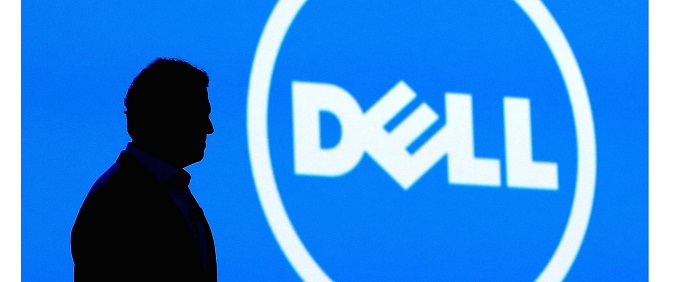Technology
Dell Launches Industry First Recycled Carbon Fiber, Advances Circular Economy Model for IT Industry

- Dell expands industry-first closed-loop recycled plastic supply chain globally across 35 products using more than 4.2 million pounds of post-consumer recycled plastics
- Dell partners with SABIC to introduce reclaimed carbon fiber into Latitude and Alienware products, preventing approximately 820,000 pounds of the material from reaching landfills
- Dell joined the Ellen MacArthur Foundation’s Circular Economy 100 program to further global collaboration advancing circular practices across the IT industry and beyond
Dell today announced additional progress against its circular economy initiatives, including the expansion of its closed-loop recycled plastic supply chain, introduction of reclaimed carbon-fiber source materials and new industry collaborations to advance global circular practices.
In an industry first, Dell has partnered with supplier SABIC to recycle excess carbon fiber and scrap raw materials into new Dell products beginning in late 2015. Initially, select Latitude and Alienware products will contain recycled carbon fiber, with plans to expand across these two product portfolios in 2016. Dell estimates that by partnering with SABIC, it will prevent 820,000 pounds of carbon fiber from ending up in landfills. The recycled carbon fiber materials have an approximately 11 percent smaller carbon footprint than simply using virgin carbon fiber.
Since Dell began pioneering its closed-loop recycled plastics supply chain in January 2014, the company has recycled 4.2 million pounds of closed-loop plastics into enclosures for new Dell products. These plastics were used in more than 30 flat panel monitor models and three Dell OptiPlex desktops available globally, with plans to scale across servers and other products in 2016. Dell’s process was certified by UL Environment as the first closed-loop supply chain, and continues to be the only one in the industry. Dell was also able to reduce its product carbon footprint via the closed-loop products by 11 percent and realized a cost savings over previous sources.
“The technology industry has a unique responsibility to help shift the world to a circular economy model, and Dell’s long standing investments in sustainable business puts us in a unique position to lead the way,” said Trisa Thompson, vice president and chief responsibility officer at Dell. “We are always looking for collaborations that bring efficiencies to our business, and help our customers do the same.”
Ongoing Commitment to Circular Economy Initiatives
The Green Electronics Council presented Dell with its “2015 Catalyst Award” on September 23 to recognize Dell’s leadership in closed-loop recycled plastics manufacturing. The Catalyst Awards are a global celebration of innovative solutions and tangible environmental accomplishments throughout the lifecycle of electronic technologies.
Dell also announced it has joined the Ellen MacArthur Foundation’s Circular Economy 100 program, to collaborate with like-minded businesses and industries to advance the circular agenda. As part of the CE100, Dell will work with global business leaders to develop new approaches to how companies manufacture goods, identify new partnership opportunities and contribute best practices that help businesses and society accelerate the shift to a circular economy.
Dell believes the circular economy will increasingly become a business imperative and that technology plays a critical role in enabling the transition. Dell hopes to reduce the amount of waste and by-product created from technology manufacturing by reusing materials already in circulation and seeking renewable alternatives where they exist. Since 2013, Dell has incorporated more than 21 million pounds of recycled plastics from sources including water bottles and CD cases as it continues to work towards a goal of using 50 million pounds of recycled materials by 2020. In addition to finding ways to build circular thinking into their products and operations, Dell seeks to help customers take advantage of technology’s ability to create efficiencies in how resources are managed and used.
The transition to a more circular economy not only delivers substantial environmental benefit through reducing waste and reliance on natural resources, it also has an economic impact, with estimates that this shift overtime could create $1 trillion in additional value.
To learn more about Dell’s circular economy initiatives and its 2020 Legacy of Good Goals visit www.Dell.com/LegacyofGoodUpdate.
About Dell
Dell Inc. listens to customers and delivers innovative technology and services that give them the power to do more. Dell looks beyond their walls to inspire sustainable practices throughout their entire ecosystem, making sustainability easier for customers, communities and partners. More at dell.com/environment
About SABIC
SABIC’s Innovative Plastics business is a leading, global supplier of engineering thermoplastics with an 80-year history of breakthrough solutions that solve its customers’ most pressing challenges. The company’s extensive product portfolio includes thermoplastic resins, coatings, specialty compounds, film, and sheet. Innovative Plastics (www.sabic-ip.com) is a wholly owned subsidiary of Saudi Basic Industries Corporation (SABIC).

















































